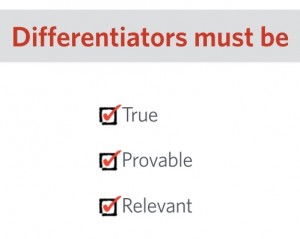 If you’re going to go for a job, you might as well take the time to focus, properly prepare and get the position. Naturally, this entails integrating complex business ideas so you appear competent, intelligent and knowledgeable to the interviewing party.
If you’re going to go for a job, you might as well take the time to focus, properly prepare and get the position. Naturally, this entails integrating complex business ideas so you appear competent, intelligent and knowledgeable to the interviewing party.
Below, we will show you how to integrate some complex business theories into your everyday interviewing techniques. Not only will you impress, you’ll end up teaching the hiring manager or recruiter something they didn’t know.
1. When the interviewer discusses the more challenging parts of the job, don’t get discouraged. Rather, respond by reiterating that nothing worthwhile is easy. However, there is not a problem out there that could not be solved via proper analysis and learning.
2. If asked about the failures you’ve had, you can explain how you consider mishaps to be one step closer to the solution which keeps up your energy, fuels resiliency and puts aside unnecessary frustration.
3. When asked about current positions, discuss what the company did in a very basic sense, discuss the overarching goals of the organization then touch upon what you were asked to achieve, how you went about accomplishing those goals and the outcome the company saw from this performance.
4. Although most of the time, you will not directly be asked as to what your strengths are during the interview, you should still mention them throughout the meeting in the course of answering the interviewer inquiries.
5. Don’t worry if you are not from the exact industry. While not every employer keeps an open mind, many will and will not judge you less than other candidates within that vertical.
What is most important to a smart employer or recruiting expert is whether or not the individual fits within the corporate culture, shows a great deal of competency, is friendly, though candid, loves his job and displays passion and has a resilience that is conducive to the company being able to gain competitive edge over other organizations in the field.
6. Throughout the interview, you should touch upon the reasons you’ve been successful in your career or within your education (for recent graduates). Answers such as the following will catch the interviewer’s or recruitment professional’s attention:
– You’ve developed the right habits and work ethic which gives you a competitive advantage in the productivity aspect of your job. Essentially, you do what you should do, when you should do it, whether you feel like it or not.
– You’re competent, easy to work with, though not a pushover, loyal to the companies you’ve worked for, and always are able to envision the bigger picture and drive towards those goals with vigor and dedication.
– You know what you want out of a career and you’re focused on getting it regardless of hurdles.
– While anyone can learn an industry, traits are character, work ethic, basic intelligence, dedication to filling commitments, and ingrained values are something that cannot be taught.
7. Put the past in the past. Some interviewers are just difficult to deal with. Our recruitment agency comes across prospective individuals who don’t interview well, are abrasive and unwelcoming to candidates.
They don’t get very far and do it to everyone so please don’t take it personally when this has happened in the past. It is an illogical way to do business and never benefits the hiring company.
8. If you’re coming from being unemployed you can say that you were fortunate enough to do very well at your past positions and instead of rushing into another job, you thought it would be more strategic to dedicate full-time to the search so you found something that again, you would excel in.
Mention that great jobs are not found overnight and good decision making is not impulsive nor are you. You can further this thought with the thesis that having a break on your CV is much more preferable than ending up with an organization in which success is not possible.
9. You could also discuss what interested you about the company. Some examples would be:
– The firm makes a decision concerning what they want to accomplish, how they want to do it and when they plan to complete the project
– You got the inclination that the company rewards hard work and performance rather than utilizing non-performance measures.
In The End
Remember, thank the person for their time and understand that you can only control your own behavior and performance. Try to go further than that and you’re much more likely to fail. People shy away from manipulative behavior and it can ruin what would have been a job offer.
(148)









